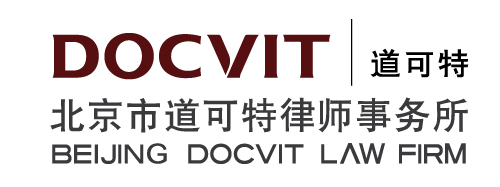The Supreme People’s Court (SPC) issued a civil ruling on a dispute over abuse of dominant market position in Shanghai Youzu Information Technology v Walt Disney (China) (2021), pointing out that “the arbitration clause agreed by the parties in the contract cannot be the natural and absolute basis for excluding the jurisdiction of the people’s court on monopoly disputes over abuse of dominant market position”, and determining that the case was within the court’s jurisdiction. Accordingly, the first-instance ruling was revoked, and the Shanghai Intellectual Property Court was ordered to hear the case. While the first-instance ruling dismissed Youzu’s lawsuit, Youzu was successful in the second instance.
Since the Jiangsu High People’s Court first pointed out that monopoly disputes should be under the jurisdiction of people’s courts in Songxu Technology v Samsung in 2016, the SPC has clarified its position in six other cases concerning “whether an arbitration clause excludes the jurisdiction of courts over monopoly disputes”. If there was any question on whether monopoly disputes could be arbitrated in judicial practice before 2021, the SPC opinions in two cases, including Youzu v Disney, show China’s thus far relative conservatism in adjudicating monopoly disputes through arbitration has become clear in 2022.
This article discusses the arbitrability of monopoly civil disputes, their suitability for arbitration, and other issues by analysing relevant precedents, current laws, regulations and the legal environment, to offer recommendations for such disputes.
Raising the question

Senior Partner
DOCVIT Law Firm
Since Songxu Technology v Samsung in 2016, the issue of whether monopoly civil disputes can be arbitrated in China has sparked many discussions and much support. Two supporting reasons stood out: (1) monopoly civil disputes are arbitrable; and (2) China should follow the international trend and learn from the experience of the US and the EU on anti-monopoly. However, these reasons are contradictory and debatable.
First, instead of learning from the latest foreign practices, would it not be more reasonable to refer to foreign practices in a period comparable to the current domestic legal conditions? Although the US and EU have developed advanced systems, they were also for a long time negative on the arbitrability of anti-monopoly disputes.
Second, if arbitrability is regarded as a sufficient condition for the arbitration clause to exclude courts from having jurisdiction over monopoly civil disputes, why did western jurisdictions for so long consider monopoly civil disputes unsuitable for arbitration?
Third, are monopoly civil disputes arbitrable to begin with?
Suitability for arbitration
When choosing a system, one must consider not just if it can be done, but if it should be done. Specifically, both the arbitrability of monopoly disputes (whether monopoly disputes are within the scope of arbitration) and suitability for arbitration should be considered to determine whether monopoly disputes should be allowed to be arbitrated.
Regarding arbitrability, although there is no clear provision that monopoly disputes are not within the scope of arbitration, looking back at the legal basis of arbitration and the essence of the arbitration clause, such a clause is essentially an agreement between the parties to authorise the arbitral tribunal to resolve their dispute, which represents the free will of both parties. Therefore, privity is the basic attribute of arbitration clauses, and matters to be heard in arbitration should be limited to the rights, obligations or disputes between the parties. In other words, only civil disputes within the scope of arbitration may be arbitrated as agreed by the parties.
On the contrary, the Anti-Monopoly Law, as an economic constitution, bears the fundamental responsibility of maintaining the order of market competition and shares many attributes of public law. Therefore, the legal interests involved in monopoly civil disputes and the matters to be tried are far beyond the rights and obligations of the parties or the scope of disputes.
Regarding the suitability for arbitration, the logical contradictions of supports show that suitability cannot be ignored. The fact that China has not yet developed mature anti-monopoly law enforcement and judicial experience, and the limitations in current domestic commercial arbitration, are important considerations. Commercial arbitration is an imported system. There are decades between the promulgation and implementation of China’s Arbitration Law and the New York Convention. Therefore, from the perspectives of historical precipitation, arbitration culture dissemination, public awareness, market demand, and judicial system guarantees, China’s arbitration system needs to be cultivated and optimised in terms of institutional mechanisms and practical capabilities. At this stage, monopoly civil disputes are clearly not suitable for arbitration.

2021 has been dubbed “China’s year zero for anti-monopoly”, with the state attaching unprecedented importance to anti-monopoly. However, given the anti-monopoly system still needs continuous improvements, and the current level of related law enforcement and judicial practice, monopoly civil disputes with a strong tendency for public policy should remain under the jurisdiction of courts (specifically, the SPC will be solely responsible for the second-instance trial of monopoly civil disputes), to better guarantee the quality of case trials and harmonise the trial criteria of anti-monopoly cases across the nation.
Lin Wei is a senior partner at DOCVIT Law Firm

DOCVIT Law Firm
56/F Fortune Financial Center
No.5 East Third Ring MiddleRoad
Chaoyang District, Beijing 100020, China
Tel: +86 10 8586 1018
Fax: +86 10 8586 3605-8006
E-mail:





















